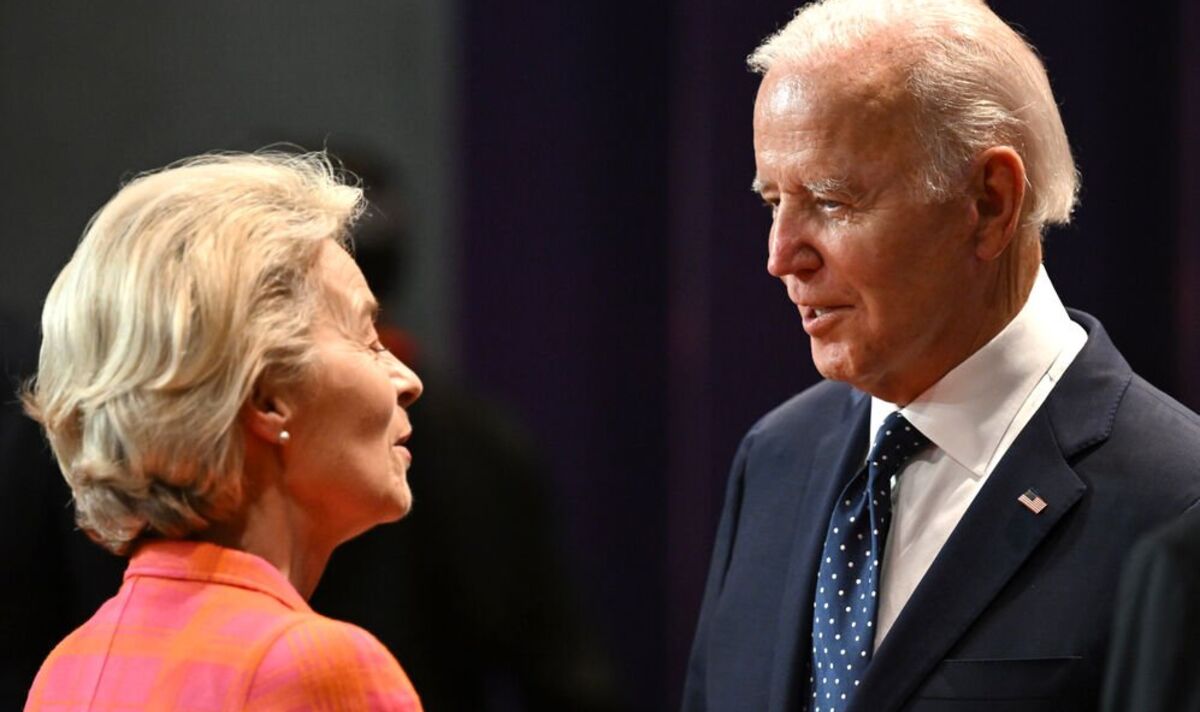Controversial Appointment: HHS And The Debunked Autism-Vaccine Connection

Table of Contents
The Scientific Consensus: No Link Between Vaccines and Autism
Overwhelming scientific evidence from numerous large-scale studies consistently demonstrates no causal relationship between vaccines, including the MMR vaccine, and autism spectrum disorder (ASD). This consensus is supported by decades of research and rigorous analysis.
- The original Lancet study linking MMR vaccine to autism was retracted and its author discredited. Andrew Wakefield's fraudulent 1998 study, published in The Lancet, was the primary source of this misinformation. The study was later found to be based on falsified data, unethical practices, and conflicts of interest, leading to its complete retraction and Wakefield's medical license being revoked.
- Multiple large-scale epidemiological studies have found no association between vaccines and autism. Numerous independent studies involving hundreds of thousands of children have consistently failed to find any link between vaccines and the development of autism. These studies have used robust methodologies and controlled for various confounding factors.
- Leading medical and scientific organizations worldwide, including the CDC and WHO, firmly reject the autism-vaccine link. The Centers for Disease Control and Prevention (CDC) and the World Health Organization (WHO), along with other major health bodies, have clearly stated that there is no evidence supporting a causal relationship between vaccines and autism. Their position is based on extensive reviews of the available scientific literature.
- Autism's etiology is complex and multifaceted, involving genetic and environmental factors. The causes of autism are still being researched, but it's understood to be a complex neurodevelopmental disorder with genetic and potentially environmental influences. There is no single cause, and vaccines have been repeatedly ruled out as a factor.
The Persistence of the Misinformation
Despite the overwhelming scientific evidence, misinformation surrounding the autism-vaccine connection continues to spread, fueled by social media, advocacy groups, and some individuals in the media. This persistent misinformation poses a significant threat to public health.
- The impact of misinformation on vaccine hesitancy and decreased vaccination rates. The spread of false claims has led to increased vaccine hesitancy, resulting in lower vaccination rates in some communities. This directly increases the risk of outbreaks of preventable diseases like measles, mumps, and rubella.
- The role of social media algorithms in amplifying misinformation. Social media platforms, with their algorithms designed to maximize engagement, often unintentionally amplify misleading and false information, allowing anti-vaccine narratives to reach wider audiences.
- The challenges in countering misinformation and promoting scientific literacy. Effectively countering misinformation requires a concerted effort from public health officials, educators, and social media companies to promote accurate information and improve public understanding of science.
- The potential public health consequences of decreased vaccination rates (measles outbreaks, etc.). Lower vaccination rates lead to increased susceptibility to infectious diseases, putting vulnerable populations at higher risk. Measles outbreaks, for example, serve as a stark reminder of the consequences of vaccine hesitancy.
The HHS Appointment and its Implications
The recent HHS appointment has raised concerns due to the appointee's past statements or associations related to the debunked autism-vaccine link. This section analyzes the implications of this appointment on public trust in scientific expertise and vaccine safety.
- Specific statements made by the appointee regarding vaccines and autism. [Insert specific details about the appointee's statements here, citing sources]. This information is crucial for understanding the context and potential implications of the appointment.
- Analysis of potential conflicts of interest. It's essential to examine any potential conflicts of interest that the appointee may have regarding vaccine policy and research. Transparency is key to maintaining public trust.
- Public reaction and concerns regarding the appointment. The public reaction to this appointment is a crucial indicator of the level of concern surrounding the autism-vaccine controversy. Analyzing public discourse helps understand the implications of the appointment.
- The importance of appointing individuals with a strong commitment to evidence-based policymaking. Appointing individuals committed to evidence-based science is vital for ensuring sound public health policies and maintaining public trust in government institutions.
Addressing Vaccine Hesitancy and Misinformation
Combating vaccine hesitancy and addressing the ongoing spread of misinformation about the autism-vaccine connection requires a multi-pronged approach.
- The role of transparent communication and public health education. Clear, accessible, and evidence-based communication is vital in building trust and providing the public with accurate information.
- The importance of addressing parental concerns and anxieties. Understanding and addressing the concerns of parents is critical to fostering open dialogue and building confidence in vaccination.
- The effectiveness of community-based interventions to increase vaccination rates. Community-based initiatives can play a significant role in addressing vaccine hesitancy by building trust and reaching vulnerable populations.
- The use of social media to disseminate accurate information and counter misinformation. Leveraging social media platforms to disseminate accurate information and counter misinformation is crucial in the fight against vaccine hesitancy.
Conclusion
The appointment to the HHS, coupled with the persistent spread of misinformation regarding the autism-vaccine connection, underscores the critical need for evidence-based decision-making in public health. The scientific consensus is clear: there is no link between vaccines and autism. Combating vaccine hesitancy requires a multi-pronged approach that includes transparent communication, addressing parental concerns, and actively countering misinformation.
Call to Action: Let's work together to promote accurate information about vaccine safety and dispel the debunked autism-vaccine connection. Stay informed about the latest research, and encourage others to make evidence-based decisions regarding vaccination to protect public health. Learn more about the overwhelming scientific consensus on the autism-vaccine connection and support policies based on sound scientific evidence. Reject misinformation and champion vaccine safety for a healthier future.

Featured Posts
-
 Wta Finals 2023 Austria And Singapore Host Decisive Matches
Apr 27, 2025
Wta Finals 2023 Austria And Singapore Host Decisive Matches
Apr 27, 2025 -
 Spd Confirms Stability After Bsw Leader Crumbach Resigns
Apr 27, 2025
Spd Confirms Stability After Bsw Leader Crumbach Resigns
Apr 27, 2025 -
 Canadas Negotiating Power Leveraging Time In Us Trade Talks
Apr 27, 2025
Canadas Negotiating Power Leveraging Time In Us Trade Talks
Apr 27, 2025 -
 Pne Group Awarded Permits For Two Wind Farms And A Solar Plant In Germany
Apr 27, 2025
Pne Group Awarded Permits For Two Wind Farms And A Solar Plant In Germany
Apr 27, 2025 -
 Planning For A Happy Day February 20 2025
Apr 27, 2025
Planning For A Happy Day February 20 2025
Apr 27, 2025
Latest Posts
-
 Pegula Rallies Past Collins To Win Charleston Title
Apr 27, 2025
Pegula Rallies Past Collins To Win Charleston Title
Apr 27, 2025 -
 Top Seed Pegula Defeats Defending Champ Collins In Charleston
Apr 27, 2025
Top Seed Pegula Defeats Defending Champ Collins In Charleston
Apr 27, 2025 -
 Jannik Sinners Doping Case Concludes
Apr 27, 2025
Jannik Sinners Doping Case Concludes
Apr 27, 2025 -
 Us Open 2024 Svitolinas Straight Sets Win Against Kalinskaya
Apr 27, 2025
Us Open 2024 Svitolinas Straight Sets Win Against Kalinskaya
Apr 27, 2025 -
 Svitolina Cruises Past Kalinskaya In Us Open Opener
Apr 27, 2025
Svitolina Cruises Past Kalinskaya In Us Open Opener
Apr 27, 2025
